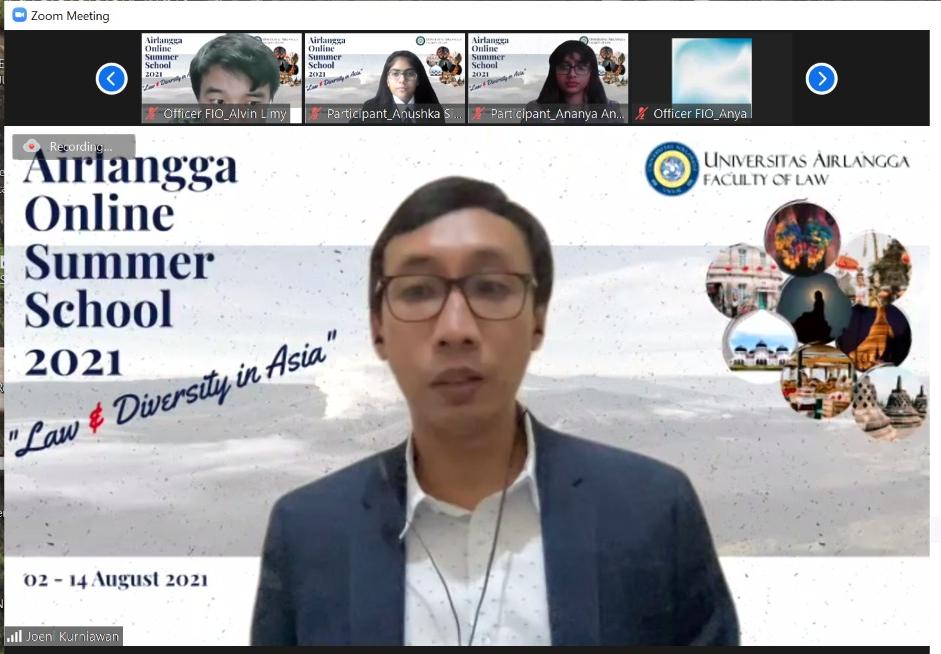UNAIR NEWS – Asia is a continent with a high level of population diversity, thus making the legal landscape, which is certainly based on and controls aspects of history, politics, and religion, a unique experience and practice. With this background, UNAIR’s Faculty of Law held the 2021 Summer School program for foreign law students from August 2 to August 14, 2021.
This summer school program offers participants the ins and outs of Indonesian law and various legal systems in other Asian countries, especially in the Southeast Asian region. The 2021 Summer School Convener, Amira Paripurna, Ph.D., said in an interview that the purpose of this program is to train foreign law students to become world-class lawyers who can visually transition from one legal system to another.
“This program is also aimed at narrowing the distance between the discourse of the continental (civil law system) and the commonwealth (common law system),” said the expert on criminal law.
The summer school participants will attend lecture sessions for 40 hours in the program. Amira also explained that participants would be given assignments such as writing short essays, mini-research, discussions, and presenting discussion materials based on the lectures given. Alumna of the University of Washington, School of Law, also said that the law students who joined the student exchange program came from Pakistan, Palestine, India, Bulgaria, the United Kingdom, and also Indonesia.
“At the end of the event, we have also prepared a Surabaya Virtual Tour activity to introduce the city of Surabaya and the culture of East Java to attending foreign students,” she added.
The academics who give lectures at the 2021 Summer School include Dr. Joeni Kurniawan and Dr. Herlambang P. Wiratraman from UNAIR. There are also lecturers from other universities, Prof. Ramy Bulan from the University of Malaya, Malaysia, and Roy Paolo Santiago, BA, JD, from Ateneo de Manila University, Philippines.
“Some of the materials we presented in the Summer School are related to indigenous peoples’ law, legal pluralism, ASEAN law, comparisons of criminal law systems in Southeast Asia, and human rights,” concluded Amira.
Author: Pradnya Wicaksana
Editor: Nuri Hermawan





